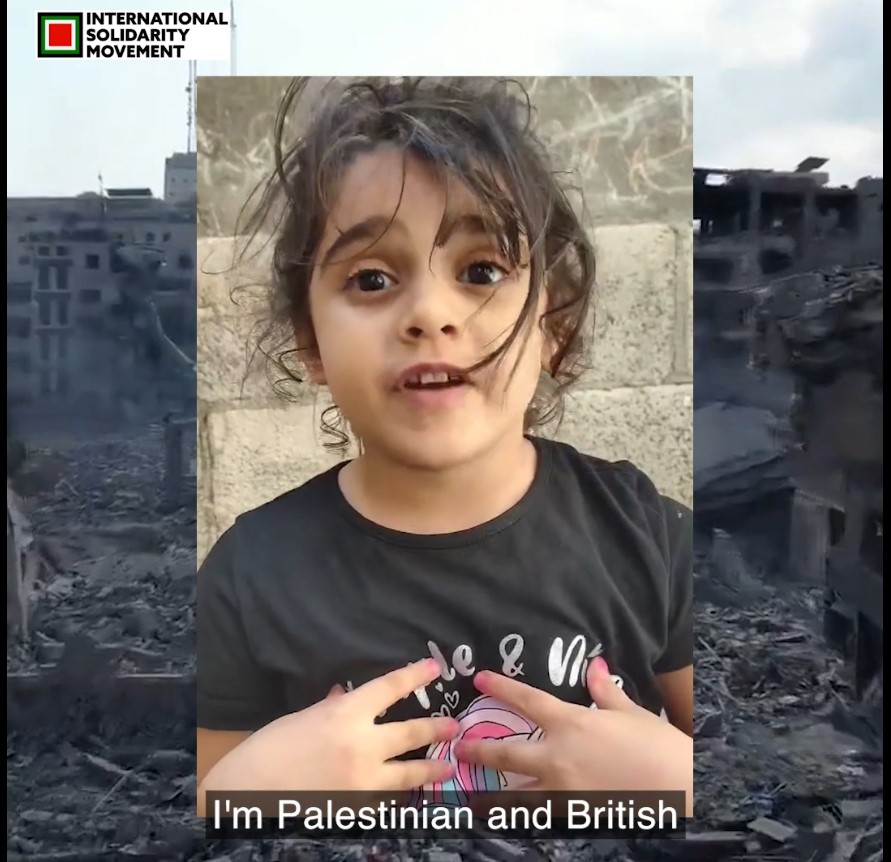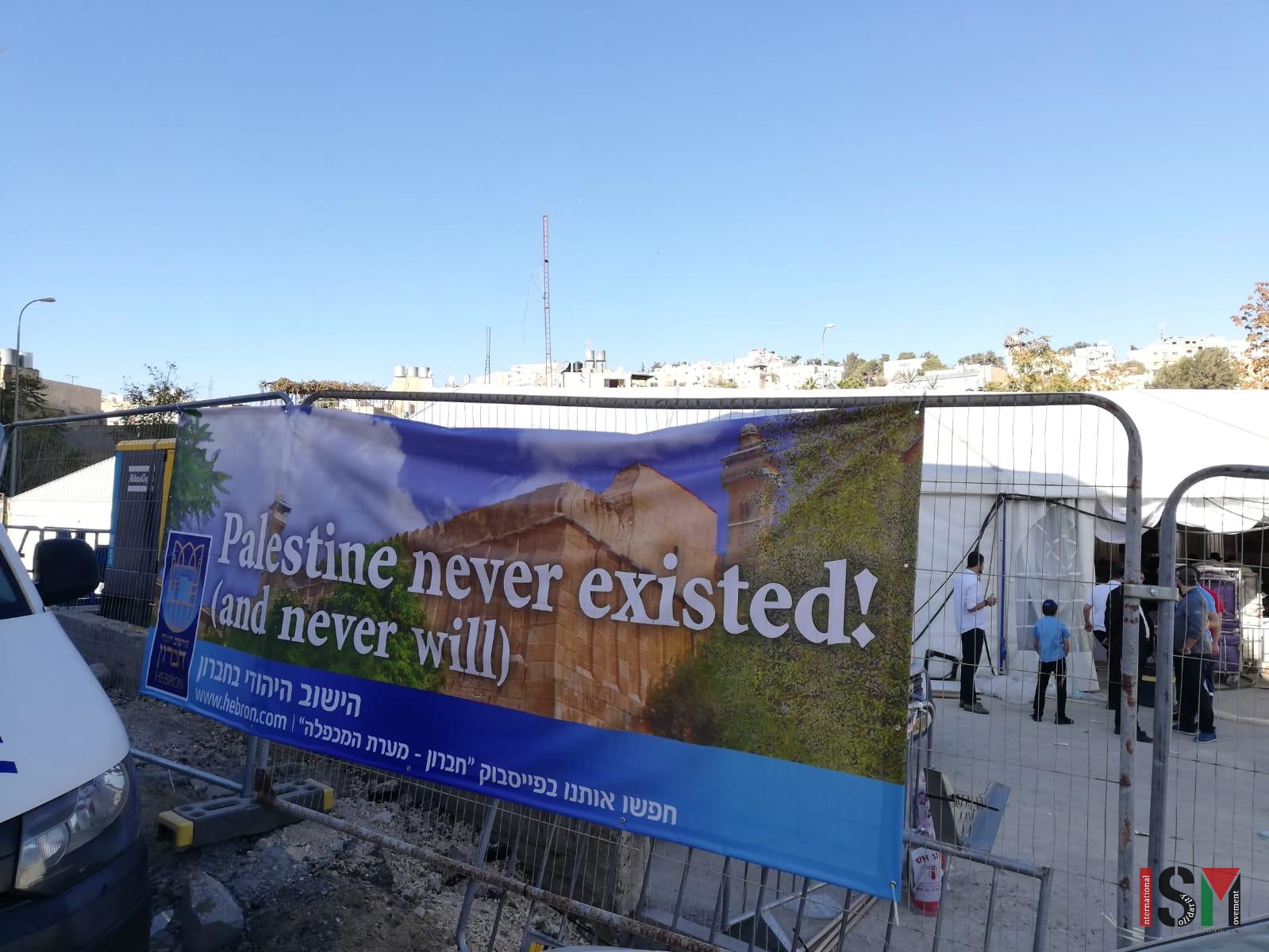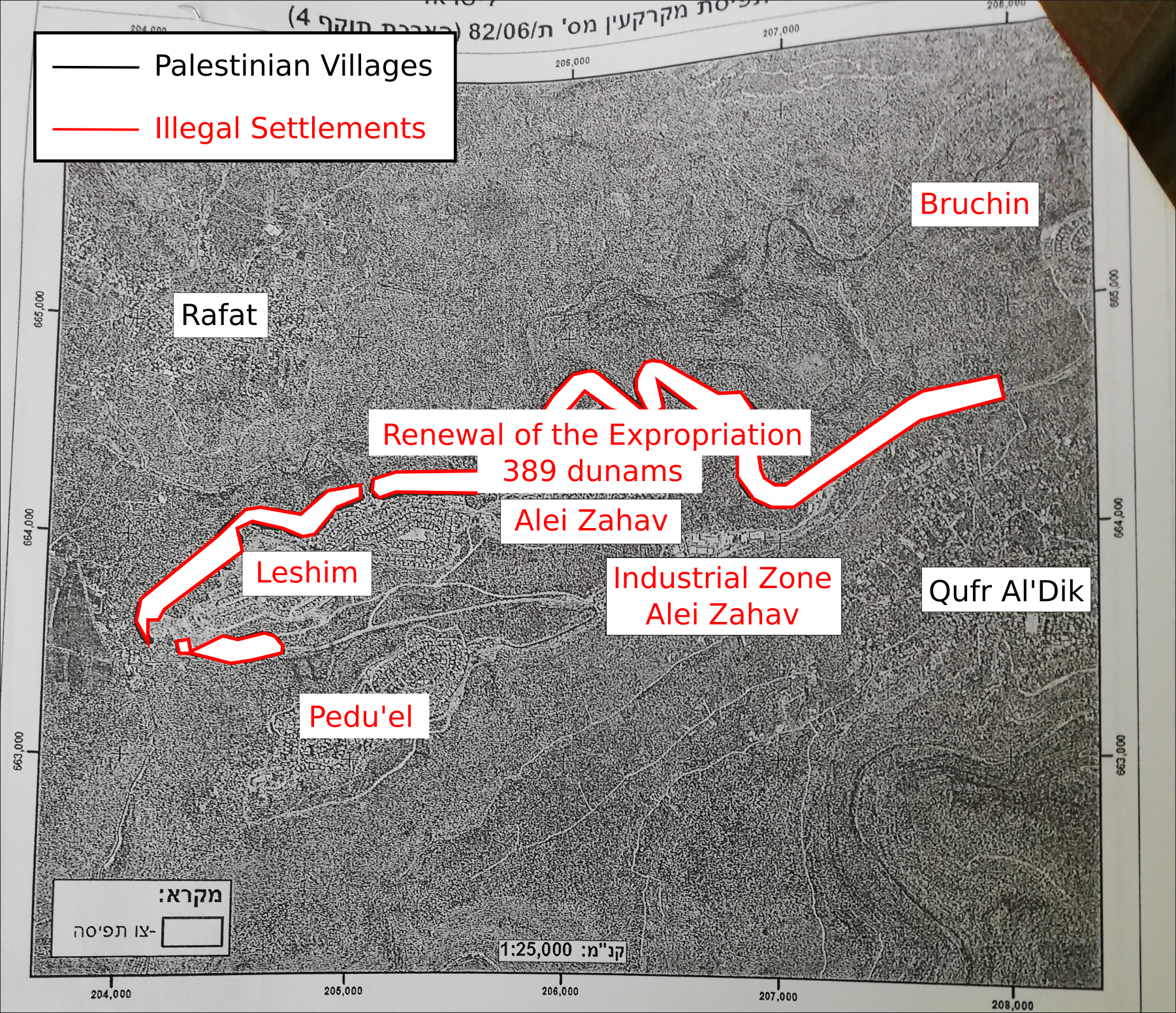Tag: Israel
-
WATCH: British-Palestinian children in Gaza call on Rishi Sunak to stop Israel’s massacre
‘I’m scared. They keep bombing children.’ Jenna and Nur, two British-Palestinian sisters in Gaza, have called on Prime Minister Rishi Sunak to stop the bombing in a video message. Jenna is just five years old, and Nur is seven. The sisters are living under constant bombardement, and are now homeless. In 19 days of…
-
When holidays bring hate: Sarah’s Day in Occupied Hebron
For Palestinians living in Occupied Hebron, Sarah’s Day, a major Jewish holiday, means an increase in violent attacks by illegal Israeli settlers.
-
Report on Land Confiscations by the Israeli Army in Salfeet and Qalqilya Area
The Israeli Occupation Forces have recently announced a new series of land seizures in eleven villages in Salfeet and Qalqilya, Occupied Palestine, a move that will affect almost 1 million square metres of Palestinian land.



